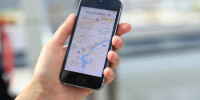Travel to Indonesia? Tips for planning and preparation

Happy to hear you will travel to Indonesia! Here some information that you need to know before go to Indonesia.
Travel Size
- Indonesia doesn’t really have a summer or a winter, just a dry season and a wet season.
- Indonesia is one of the cheapest places to travel in South-East Asia.
Know before you go
- While most areas of the country are relatively safe, some islands do experience conflict.
- Drugs are not tolerated in Indonesia.
- You may need vaccinations, depending on your health status and the area of the country you’re travelling to. Speak to your doctor as early as possible before you travel.
Best time to go
Dry season: May to September
Wet season: November to April
Unless you love a good tropical storm every day, the dry season is generally considered the best time to visit Indonesia. However, many Travelers take their holidays there during the wetter months of December and January.
Check the average rainfall and temperature for your dates and destination.
- Although Christmas falls in the middle of the low season, it’s usually a busy time.
- Accommodation and transport can book up when locals take their holidays during Eid al-Fitr, at the end of Ramadan (dates change each year).
- During Ramadan, many Indonesians fast throughout the day. It’s disrespectful to eat, drink or smoke in very public places, such as on the street. For that reason, street food will be hard to come by and many cafes and restaurants may be closed during the day. Bali is mostly unaffected.
- Bali celebrates its lunar New Year, Nyepi (dates change each year), with a day of silence and inactivity. Tourists are expected to observe this custom as well – so that means staying in your hotel room and doing (and saying) nothing.
- The peak season can get extra crowded at the end of the school year (June/July) when Indonesian high school students celebrate a far less rowdy version of Schoolies, taking bus excursions to local tourist attractions.
Culture
- Around 85% of Indonesians are Muslim although almost 85% of Balinese are Hindu. Visitors should respect local customs and dress conservatively. In popular tourist areas like Bali, wearing a swimsuit on the beach might not raise many eyebrows, but it’s best to cover up for visiting villages, towns, mosques and temples. In mosques, shorts are not allowed, and women should wear long sleeves and a head scarf.
- Aceh Province is far more conservative than the rest of the country and enforces some aspects of Sharia law, including punishments for extramarital sex, homosexuality, drinking alcohol and even dressing inappropriately.
- During the holy month of Ramadan (dates change each year) Muslims fast during the day. It’s disrespectful to eat, drink or smoke in public places.
- Eating (or giving and receiving things) with your left hand is considered extremely rude.
- Putting your hands on your hips is considered rude, as is pointing using your finger and touching a person (even a child) on the head.
- Tipping isn’t mandatory, but it is customary, particularly as the minimum wage in Indonesia is very low. 5-10% of the bill is appropriate in restaurants.
Official language: Indonesian (Bahasa Indonesia)
People working in hotels, airports, and service jobs in tourist areas generally speak English, but most Indonesians on the street will only know a few words. You may have trouble finding a taxi driver who can speak English. Have your destination written down so you can show them (literacy rates are high, so they should have no trouble reading it).
Indonesian is written in the same alphabet as English, so you’ll be able to read signs and place names.
Health and safety
- Tap water in Indonesia is not safe to drink. Stick to bottled or boiled water and ask for drinks with no ice.
- Indonesian hospitals, specially in Bali and Jakarta do have English-speaking private hospitals and clinics that cater to western tourists at higher prices.
- Some hospitals will insist on upfront payment or proof of travel insurance before treating foreign patients
Phone and internet
Global roaming and coverage
Your mobile phones should work in cities and towns using Indonesia’s GSM networks, but the global roaming costs (and in particular the data roaming costs) are likely to be astronomical.
Tip: Switch off data roaming on your phone before you leave home country. Likewise, switch off your voicemail and ask friends and family to text you rather than calling (you’ll be charged if you answer incoming calls).
Local SIM
Local SIMs are a much cheaper option if you can’t live without a phone and you don’t mind having a different number while you’re overseas. Indonesia’s main GSM carriers are Telkomsel (Simpati), Indosat, XL and 3.
You can buy a SIM pre-loaded with credit from a convenience store or kiosk – look for the word ‘pulsa’ (credit) on shop signs. Set-up is simple and doesn’t require ID or creating an account – simply pop the SIM into your phone and you’re good to go as long as your phone is unlocked. To top up your credit, look for that pulsa sign again, pay the vendor and give them your mobile number – they’ll send the credit to your phone.
Tip: 50,000 Rp of credit should be enough to last you a week or two, but if you use the internet or make international calls you’ll need to top up your pulsa more often.
Wi-Fi
An internet connection is fairly easy to find in tourist areas. Many coffee shops and hotels in Bali and Jakarta offer free Wi-Fi, although connection speeds may be slow. In rural areas, however, you’ll be lucky to get a phone signal, let alone access to the internet.
Internet
Instead of hunting for Free unsecure Wi-Fi connection, If you need Internet connectivity when in Indonesia, just rent a Mobile Wifi / Pocket Wifi / Travel Mifi for All Area in Indonesia. That will enable you connected to Internet without expensive data roaming charges and you will have your own personal Wi-Fi, secure & can connect up to 10 devices. The Best rental provider in town is JavaMifi. Support all area in Indonesia from Jakarta, Bali, Surabaya, Yogyakarta, Medan, Bandung, Lombok, Manado, and the others, JavaMifi will enable you to access the browsing site, use maps, find recommended restaurant, video call, chat, etc.
Power plugs
Standard voltage: 230V
Frequency: 50 Hz
Indonesia’s voltage and frequency usually same as your home country, which means you can use appliances safely without a power converter or transformer (ie. they won’t catch on fire or melt!).
Power sockets:
Indonesia’s power sockets and plugs maybe different to your’s, so you will need a power adapter. Since the country uses two different types of socket, a universal adapter is recommended.
Money
Currency: Indonesian Rupiah (Rp IDR)
Check xe.com for the latest exchange rates.
Important: Tell your bank about your travel plans two weeks before you leave. Card activity in a foreign country could be mistaken for fraud and you could find your account frozen.
Credit cards and ATMs
Pack your credit card, but you’ll probably only be able to use it in the more high-end hotels, shops and restaurants. Most businesses prefer to deal in cash.
ATMs are common in towns and cities, and you’ll have no trouble finding them in Bali. When ATMs detect a foreign card, they’ll offer you the choice of instructions in English or Indonesian. Remember that you’ll be charged a foreign exchange fee and a withdrawal fee for every transaction – which can add up to as much as $20.
Money changers
You’ll have no trouble finding money changers in tourist areas. Most will exchange US dollars, Australian dollars, Malaysia Ringgit, Singapore dollar, Euros and others for Indonesian Rupiah. Once you go off the beaten path, your options become more limited so you’ll need to make sure you have plenty of Rupiah already on you (hide it well).
Banks and official exchange outlets are your best bet. Avoid changing money at the airport – it’s unlikely you’ll get a good rate. Avoid changing money with shopkeepers – your chances of being fleeced are much higher.
Travellers’ cheques are becoming a thing of the past and you’ll have trouble finding many places in Indonesia that will cash them.
Travel Insurance
Travel insurance is essential – don’t leave it until the last minute. Buy insurance at the same time as you book your trip; that way you’ll be covered if you have to cancel for some reason before you go.
Common exclusions:
- Most travel insurance policies won’t pay out if you make a claim for something that happened while you were under the influence of drugs or alcohol. So, if you’re planning a Bali bender, bear in mind that you may not be insured for much of your holiday.
- Standard travel insurance policies may not cover you for motorbike or scooter accidents. Check with your insurer.
Tips:
- Keep a print-out of your travel insurance details with you at all times while on your trip. Some hospitals may refuse to treat you if you can’t pay up front or show proof that you’re insured.
- Share your insurance details with family or friends before you leave.
Watchouts
- Always ask your taxi driver to switch on their meter. If you try to negotiate a fare, you could end up getting ripped off.
- Watch out for pickpockets, bag snatchers and other petty thieves.
- The Indonesian Rupiah has very high denominations so it’s easy to get confused when changing money, paying for items or receiving change. And unscrupulous locals may take advantage of this. Be sure you can spot the difference between a Rp 10,000 note and a Rp 100,000 note, for example.
- Haggling with street sellers is normal, but be careful you don’t get confused by the currency. If a seller says something costs “30”, that generally means Rp 30,000 not $ US30. Or just ask to make sure.
- Scammers are always coming up with new ways to swindle tourists. For examples of common scams, check Tripadvisor’s ever-growing list of Bali scams.
Emergency numbers (operators may not speak English):
Some of these numbers may not work if you’re calling from your home country mobile phone. Remember to insert the country code (+62) and the local area code (eg. 036 for Bali, 021 for Jakarta).
International emergency number: 112
Police: 110 / 112 (SMS 1717)
Ambulance and Rescue: 118
Fire: 113
Medical emergencies: 119
Tourist Police (Bali): (0361) 754 599
Tourist Police (Jakarta): (021) 526 407












